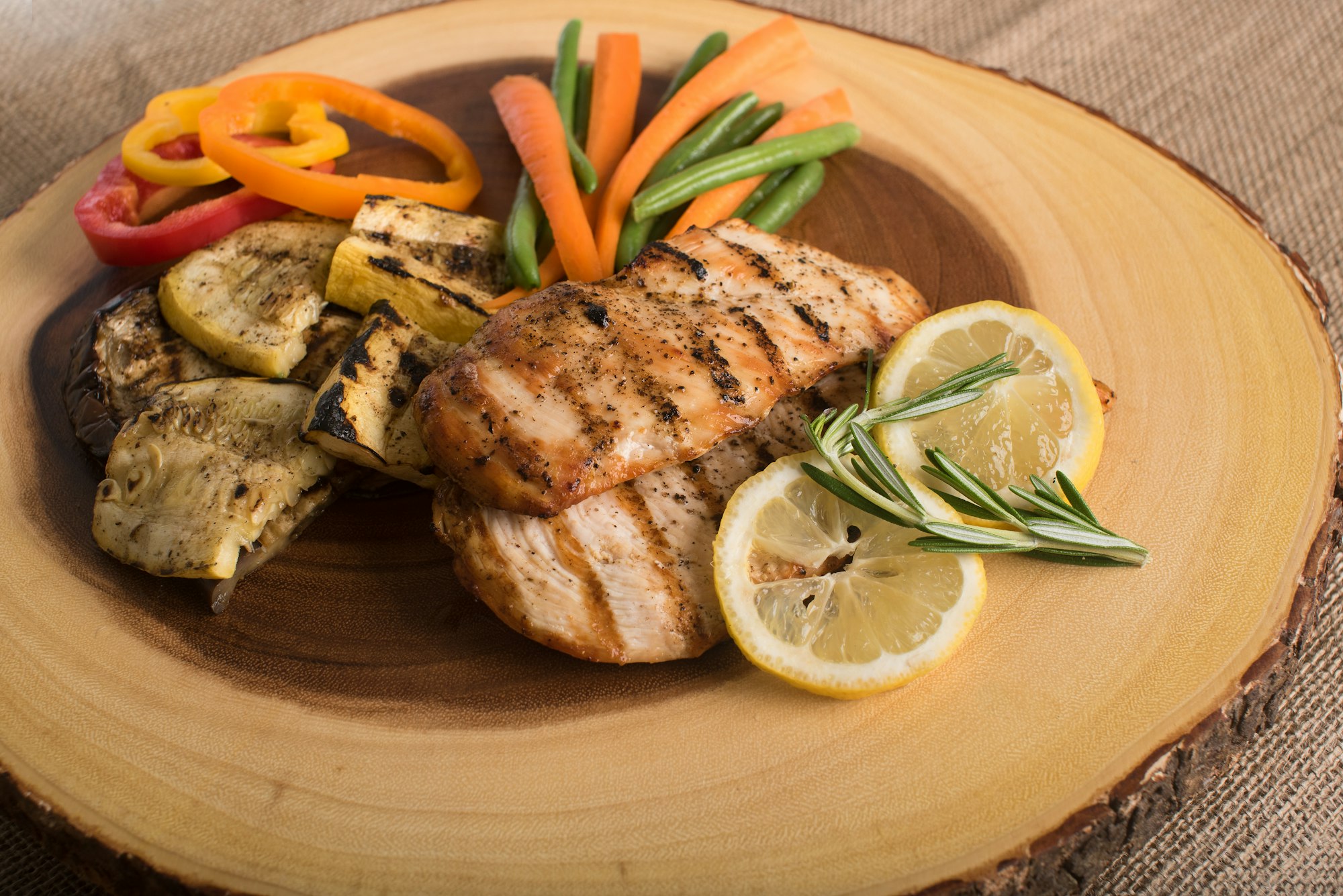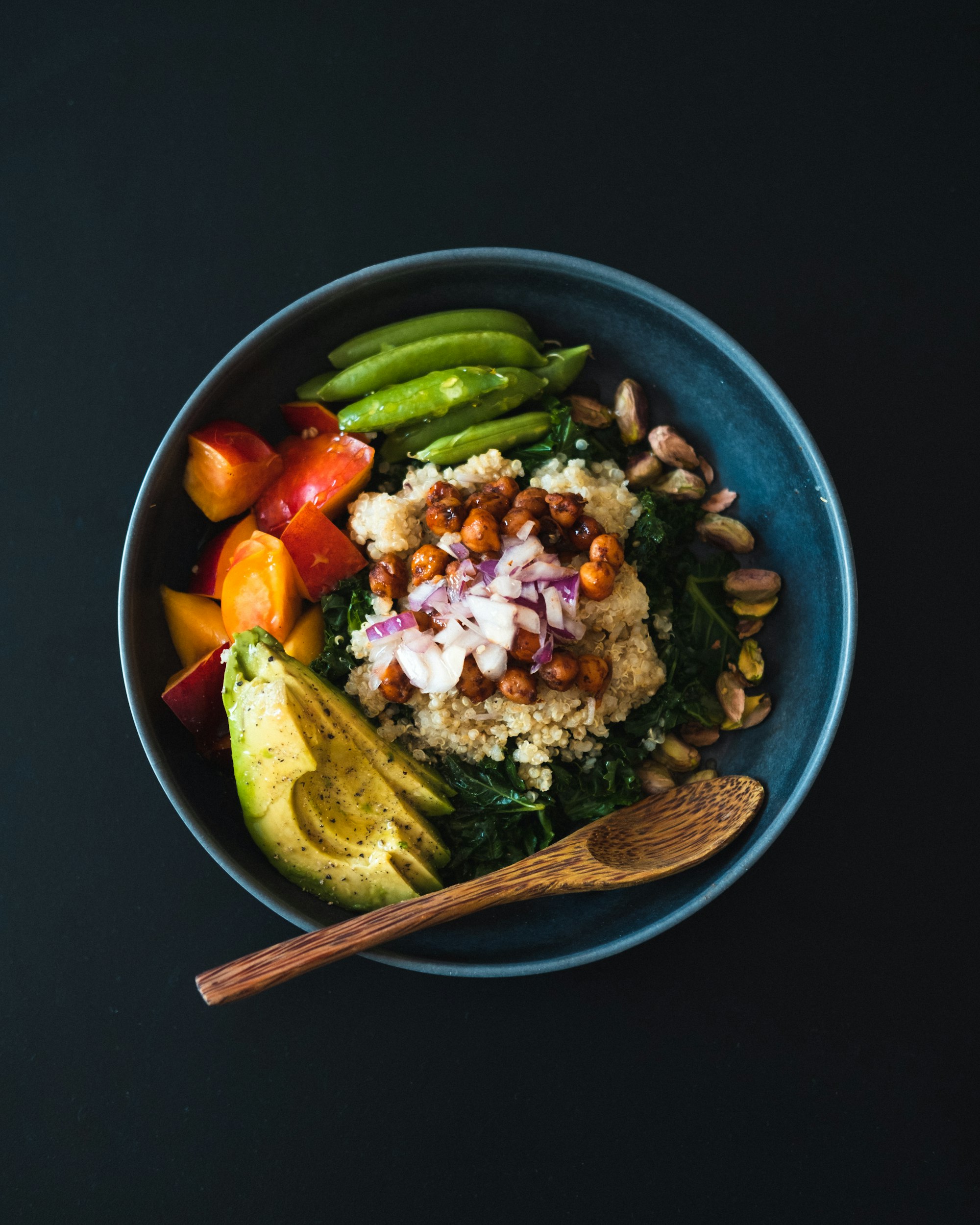How to Optimally Lose Weight
It may not surprise you that "losing weight" held onto its crown as the number 1 most common new year's resolution in 2022. As healthcare providers, it's important that we understand how to lose weight safely so that we can assist our patients and ourselves.

It may not surprise you that "losing weight" held onto its crown as the number 1 most common new year's resolution in 2022. As healthcare providers, it's important that we understand how to lose weight safely so that we can assist our patients and ourselves. Let's not forget that we experienced a pandemic of obesity well before COVID-19 ever existed. In fact, the obesity pandemic massively contributed to morbidity and mortality from COVID-19 and remains a very serious comorbidity. The same can be said for diabetes.

Diet: Let's first talk about diet, which I've purposefully listed above exercise. You've likely heard that "abs are made in the kitchen", and that's the truth. You can exercise all you want, but if you don't have your diet under control you won't see that number on the scale decrease. It's very, very difficult to out-train a bad diet. I will not be going into all of the available diets out there like carnivore, vegetarian, vegan, slow-carb, keto, IIFYM, and others for this post. You can find details on them with a simple google search and you can read all of the hate-filled comments that surround each. When it comes to weight loss (not necessarily overall health), what really matters is calories. If you eat more calories than you burn, then you will gain weight. If you burn more calories than you eat, then you will lose weight. Pretty simple, right? There are of course many exceptions to this. For instance, water weight can fluctuate massively with hormonal shifts (particularly in women), caffeine and carbohydrate intake, comorbidities such as heart failure, drug use, and much more. It's perfectly possible to lose fat and gain "weight" at the same time by holding onto more water, but water weight is generally inconsequential.
So we've concluded that all you need to do is burn more calories than you eat. How do you do that? Start by figuring out your basal metabolic rate or BMR. This is how many calories you would burn in a day if you never got out of bed. In other words, this is the amount of energy your body expends to simply keep you alive and excludes calories burned from walking, running, lifting, swimming, or doing any type of physical activity. You can find calculators for this all over the internet, but you can click here for a quick reference.
Hopefully you get out of bed every day and therefore require an adjustment to your BMR in order to calculate how many calories you burn daily. I'll refer to this as your "maintenance calories", meaning that if you eat this many calories every day (equal to how many you burn), then you will neither gain nor lose weight. Rather, you will maintain your current weight. Refer back to the BMR calculator to find out what your maintenance calories are based on your activity level. For example, I am a 5'9" tall, 25-year-old male weighing 165 lbs at the time of writing this and currently work out 5-7 days per week. That lands me at roughly 2,525 calories per day to maintain a bodyweight of 165 lbs. Fill out the calculator and write down or memorize your numbers.
These calculators are not precise, and therefore will require some fine-tuning and testing on your part. How do you do that? Start by eating 500 calories under your maintenance calories for 1 week and see what happens. If you lost weight, great! If you maintained your weight, then take off another 500 calories (assuming you keep the same level of activity). If you gained weight, then take off another 800-1,000 calories. You can count calories on paper (4 calories per gram of protein, 4 calories per gram of carbohydrate, and 9 calories per gram of fat), or you can use fitness apps like MyFitnessPal, which allow you to scan barcodes on your food items and track calories in the app. To be clear, counting calories is not necessary to lose weight, but it helps with learning about your body and food choices.
It's best not to lose too much weight too fast. Maybe that sounds crazy to you, but there are serious consequences to rapid weight loss. For starters, you are likely losing a larger percentage of muscle mass when you lose weight quickly, which is not something most people want. Secondly, losing weight quickly means that you are in a large calorie deficit and likely feel like s*** as a consequence. Generally speaking, it's best to shoot for 1-2 lbs of weight loss per week. People tend to lose weight faster at the beginning of their journey since a drastic dietary change tends to cause a lot of water loss. Larger people typically find it easier to lose weight, however, the process becomes harder as you get leaner. Remember, fat storage is extremely important to humans from an evolutionary perspective. How else do you survive winter and famine? For that reason, the leaner you are the harder it is to lose more fat. There is such a thing as too lean, as most people recognize intuitively in someone suffering from anorexia.

When it comes to actual food choices, most people will have to find their own way based on personal preferences. Generally speaking, losing weight is easiest when you consume high volume, low-calorie foods. For instance, you can eat 1 piece of pizza (≈285 calories), or you can eat 3.5 whole apples (also ≈285 calories). Other examples of ≈285 calorie snacks include: 71 strawberries, 6 oz of grilled chicken breast, 2.5 bananas, 695 g of carrots, 5.5 oz of turkey, and 4 whole eggs. This is not the only approach. For instance, ketogenic diets can be effective for weight loss and often include high-calorie options such as 80/20 beef, nuts, and sausage.
I want to be clear that when it comes to weight loss, it doesn't really matter the source of your calories. That doesn't mean that eating 2,000 calories worth of sugary cereal a day is going to lead to the same health outcomes as a 2,000 calorie balanced diet. Important variables like insulin sensitivity, muscle synthesis, hunger levels, triglyceride levels, and inflammation can be heavily influenced by what you eat. Still, in the case of most obese individuals, weight loss will almost certainly improve health outcomes regardless of what they eat to achieve a calorie deficit.
Once you reach your goal and you've achieved a healthy weight, it's not time to take your foot off the gas! At this point, you should go back to the BMR calculator or rely on the experience from your weight loss journey and start eating at your maintenance calorie level. Never forget that losing weight is the easy part. Maintaining a new, healthier weight is much more difficult. That's why I don't necessarily advocate for following a specific diet. Rather, you should try to develop a balanced lifestyle and eating habits that are relatively easy to stick with. By no means do you have to count calories or macronutrients. As you track your weight over time you'll develop an understanding of how many calories are in any given meal, how many calories your body requires under various levels of activity, and you can keep track of things in your head with a degree of accuracy that prevents you from gaining weight.

Exercise: All exercise is good exercise. Walking, running, swimming, lifting, cycling, rock climbing, whatever. The best advice is to find something you enjoy doing. Maybe you have friends at the local crossfit gym. Maybe you enjoy playing pick-up basketball games. Maybe your physical condition only allows you to walk, in which case you can use that to time to listen to your favorite podcasts, audiobooks, or other media. Whatever it is, the more you enjoy doing it the more likely you are to get out of bed and take action. For myself, I enjoy making everything a competition with my arch rival: me. Can I run faster, lift more, and do more than the old me? The fairest competition for you, is you.
The simplest recommendation is to get 30 minutes of exercise a day, which if I'm being honest, is way too simple. It's the kind of recommendation a doctor gives to you without any context. Not all exercise is equivalent in terms of calorie expenditure. Running will burn more calories than walking. If you want to eat more food, then pick something more difficult for your 30 minute session. You can also exercise for more than 30 minutes, which of course is encouraged. Keep in mind that the goal here is to be in a calorie deficit.
Generally speaking, cardio intensive exercise will burn more calories than weightlifting. There's a lot to unpack in that statement, so we'll just cover the basics. Weightlifting comes with vast and amazing benefits, but jogging and even walking for an equivalent duration of time will burn more calories. Where weightlifting shines in terms of weight loss is metabolic rate. With increased muscle mass comes increased metabolism. In other words, the more muscle you have on your frame the more calories you can get away with eating without gaining weight. Therefore, it's best to practice both. You can start with doing cardio 3 days a week and weight lifting for 2 days a week as an example. The layout of your exercie routine will largely depend on your goals. If weight loss is at the top of your priority list, then do more cardio. If you want to get stronger, then do more weight bearing exercises.
Both cardio and strength capabilities are highly associated with longevity and overall health outcomes. A healthy heart will go a very long way in protecting you from disease where as strength and physical capability will extend your health-span. Even simple things like grip strength are incredibly protective as you age. Imagine that you're in your late 70s. You're walking down the stairs and you trip. Is your grip strong enough to hold onto the rail, or are you too weak to hold yourself up? These are the small differences that can make or break a hip, and it's why weight bearing exercise is important at all ages.

Hopefully you find yourself motivated after reading this to make your new year's resolution a reality. Remember, whether you're helping a patient or yourself with this journey, everyone will have barriers to progress. Everyone will slip up from time to time. That's no big deal! As I've said, the objective here is to develop a healthy, well balanced lifestyle that you can actually stick to. You don't have to be strict with your diet all year round, you just need to be cognizant. It can be hard to find time for exercise, and everyone will be facing different circumstances. Do your best to remove as many hurdles as you can from your path, but remember that we all have to jump over them eventually. All you need to do is take the leap.

